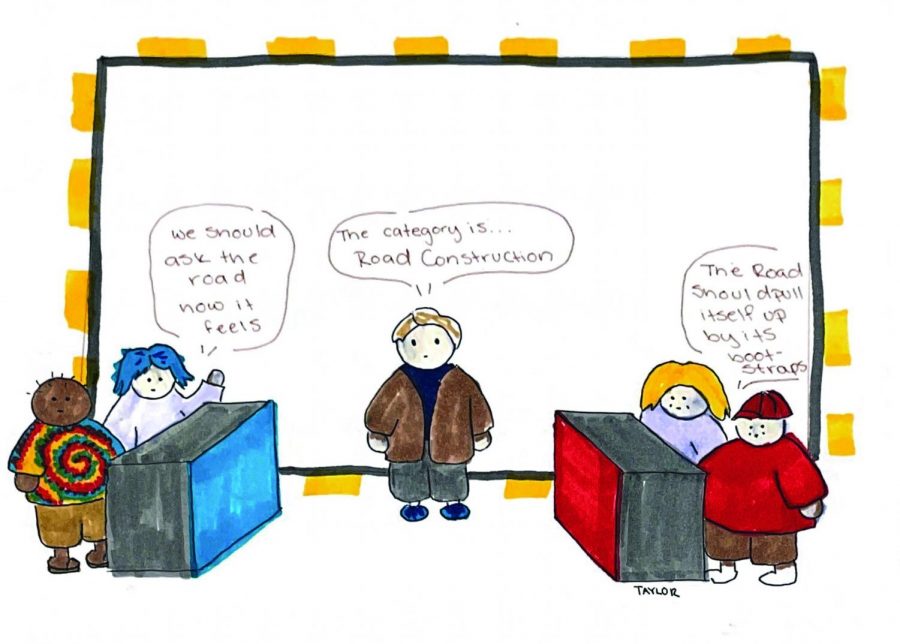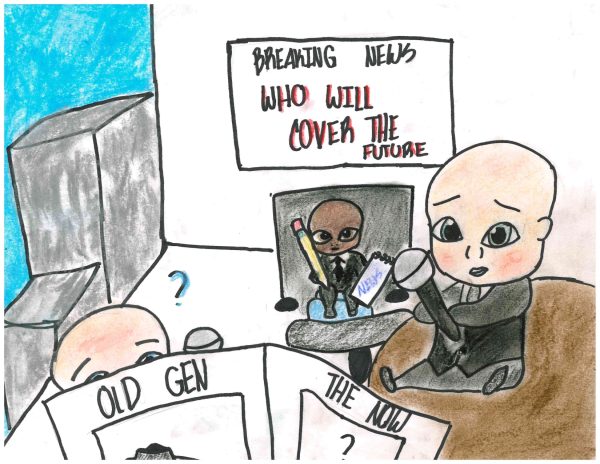Time to establish personal opinion over party rhetoric
During a time of intense polarization, news outlets and major social media companies have found an opportunity to profit off of a divided country. This has contributed to further overpolarization of bipartisan issues.
By creating buzzwords about topics that are not inherently polarized, companies like Facebook and 24-hour news outlets have not only facilitated, but contributed to the party-line divide in the United States.
Following the elections of 2016 and 2020, American politics have taken a sharp turn for party line voting and partisan contention. This divide has resulted in inefficient representation of citizens and bipartisan policies becoming highly politicized discussions.
As the daily life of citizens in the United States becomes more filled with politics, it is time to recognize the affects the 24-hour news cycle has had on television news.
The need to constantly produce content has resulted often in an overdramatization of content.
One of the easiest ways to do this is to source news from bipartisan news sources, disengage in politics on social media and recognize that just because an opinion is the first one you hear, it is not necessarily the right one.
Often, partisan social media is over exaggerated and even just incorrect, misinforming people.
Recently, Facebook had a whistleblower release disturbing intercommunications, debating not just whether or not Facebook could control fake news being spread on its platform, but if it should prevent it if it makes the company money.
There is no bigger wake up call to remove oneself from the platform or at the very least, disengage with partisan content.
The first perspectives you hear can often shape your view of the topic, especially if the perspective comes from a source you generally agree with.
This often is the news for people.
In an effort to maintain a 24-hour news cycle, many TV media outlets have turned to the overdramatization of issues to maintain content.
Too often this embellishment of news results in the involvement of something that is effective at catching the audience’s eye: politics.
The over politicization of everyday issues has increased the political divide with communities.
According to research done by Brown University professor of political economy Jesse Shapiro, American polarization has increased exceptionally more than within other democracies, such as the U.K., Canada, Australia, New Zealand, Germany, Switzerland, Norway and Sweden.
Shapiro suggests that the unique rise may be attributed to the rise of partisan cable news as well as the increase in the intertwining political party and personal identity.
Partisan media has also taken to working with the mission of their respective politicians. While they should be representing the citizens of the United States, politics can become a dirty fight for seats within the government, using fear to guide voters in their favor.
This fear is further instilled into party loyal voters with cable news and social media repeating the rhetoric voiced by extreme politicians.
Certain countries in Shapiro’s study not only avoided the rise of polarization seen in the United States, but were successful in lowering the polarization seen in these countries within the last four decades.
Something notable about these countries is that their public broadcasting systems receive more public funding than equivalents in the United States. This has likely resulted their media being motivated by spreading ethical news, not making a profit.
From the citizen perspective, these issues may seem impossible to combat. However, there are decisions to be made everyday that impact perspective along party lines.
Working to source news from bipartisan sources and avoiding politicized podcasts, cable news and social media content can all help citizens develop their own opinions as opposed to following party cues.
Voting for politicians who will represent based on the needs of the people as opposed to running for power will help combat polarization. Disengaging with politics on social media will help depolarize personal viewpoints.
It is time to make political decisions not based on the fear of the opposing party, but based on the confidence within the democratic process of the United States; because if no one believes in the democracy within the nation, then the democracy will cease to exist.







